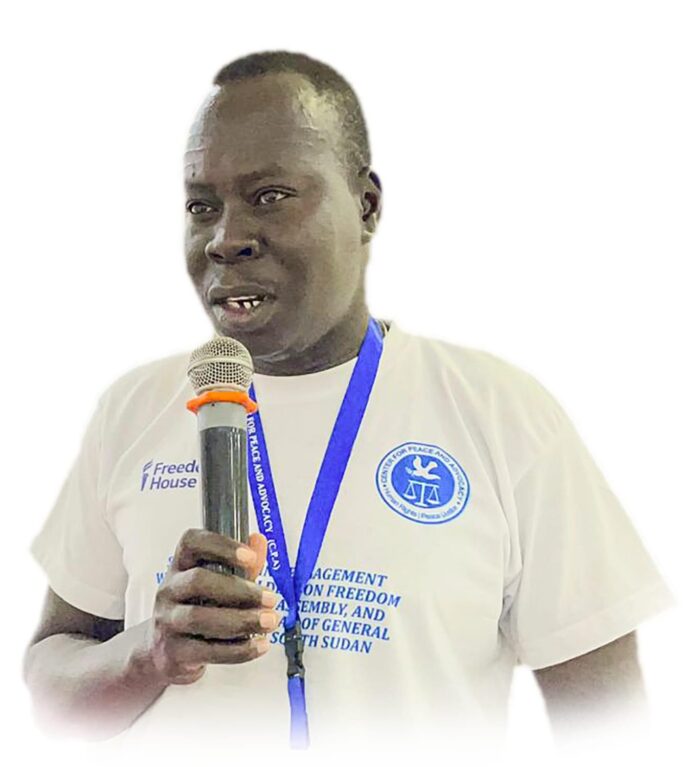Chuol Jany
As South Sudan commemorates its 13th year of Independence, activists raised concern that citizens have little to show for their hard-fought freedom, as millions of people continue to suffer in extreme poverty.
The Executive Director of the Center for Peace and Advocacy (CPA) Ter Manyang says the country is worse off than before, with political instability, a severe economic crisis, and mass displacement.
He is also concerned with intense communal violence, human rights violations, and extreme food insecurity.
“These challenges have shattered the dream of a peaceful, democratic, just, and equitable South Sudan. The signature of the 2018 Revitalized Agreement on the Resolution of the Conflict in the Republic of South Sudan (R-ARCSS) six years ago raised hopes, but those hopes were shattered in 2016 with the deadly J-1 violence,” he said.
The CPA is deeply concerned that, despite the immense suffering endured by the South Sudanese, the political class has failed to demonstrate a serious commitment and political will to alleviate their suffering.
The recent extension of the implementation period for R-ARCSS and the Roadmap by two years is a clear indication of how political leaders have ignored the plight of ordinary South Sudanese.
Mr. Ter said the lack of progress in implementation is not due to a lack of time, but rather a chronic lack of political will to guide the country in the right direction.
On this historic day, the Center for Peace and Advocacy strongly urges political leaders to translate our independence into practical realities such as peaceful coexistence, economic prosperity, quality education and healthcare, food security, provision of social services, respect for and promotion of human rights, development of infrastructure, and a stable and secure South Sudan for all.
“Without these crucial elements, our independence will remain merely symbolic and devoid of meaning. It is high time for South Sudan’s leaders to chart a new course for the country.”
“We call upon the government of South Sudan, the international community, religious and civil society leaders, journalists, educators, health workers, and activists to come together and collaborate in building an inclusive, equitable, and democratic South Sudan.”
The activists stated that leaders must actively work towards ending conflicts, safeguarding and advancing human rights, fulfilling the promises made in the peace agreements they signed, and embarking on the challenging task of nation-building that they envisioned during the decades-long struggle for independence.

